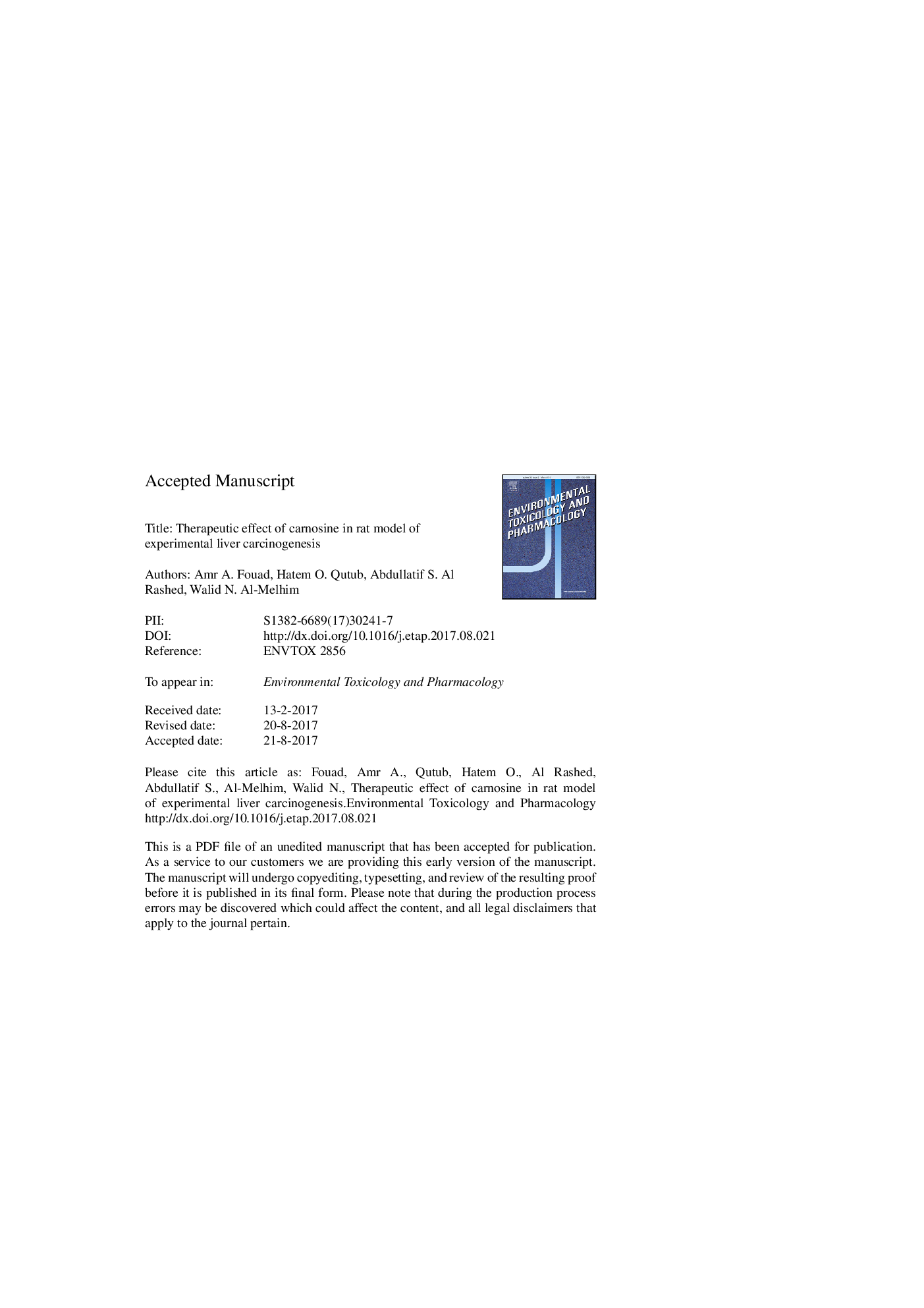| Article ID | Journal | Published Year | Pages | File Type |
|---|---|---|---|---|
| 5559623 | Environmental Toxicology and Pharmacology | 2017 | 22 Pages |
Abstract
The possible anticancer effect of carnosine versus doxorubicin was investigated against hepatocellular carcinoma (HCC) induced by trichloroacetic acid (TCA) (500 mg/kg/day, p.o., for 5 days) in rats. Following induction of HCC, rats treated with either carnosine (10 mg/kg/day, i.p.), or doxorubicin (2.5 mg/kg, i.p., once weekly), for 2 weeks. Carnosine significantly decreased serum alanine aminotransferase, and hepatic lipid peroxidation, nitric oxide, tumor necrosis factor-α, and nuclear factor-κB p65 unit, and significantly increased liver total antioxidant status in TCA-challenged rats. The effects of doxorubicin on oxidative, nitrative, and inflammatory biomarkers were less significant than carnosine. However, both carnosine and doxorubicin significantly induced liver tissue apoptotic biomarkers, Bax, cytosolic cytochrome C, and caspase-3, in a comparable manner. Additionally, carnosine and doxorubicin reduced the histopathological dysplastic changes, and alpha-fetoprotein expression in liver of rats with HCC. It was concluded that carnosine significantly protected against TCA-induced liver carcinogenesis in rats, through its antioxidant, antinitrative, and anti-inflammatory effects, and induction of apoptosis.
Related Topics
Life Sciences
Environmental Science
Health, Toxicology and Mutagenesis
Authors
Amr A. Fouad, Hatem O. Qutub, Abdullatif S. Al Rashed, Walid N. Al-Melhim,
